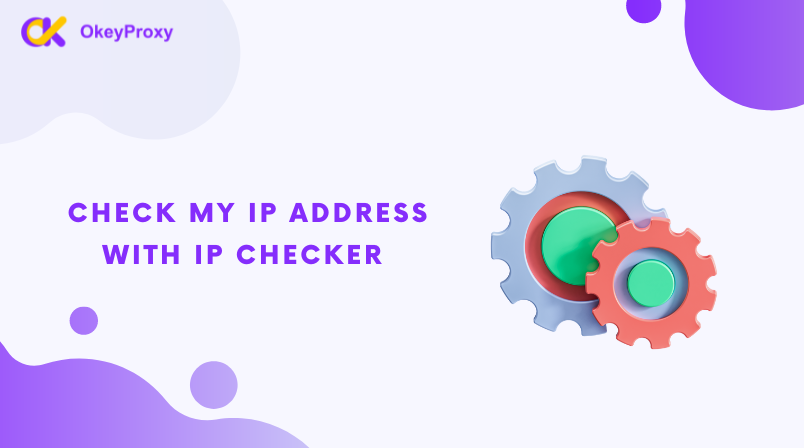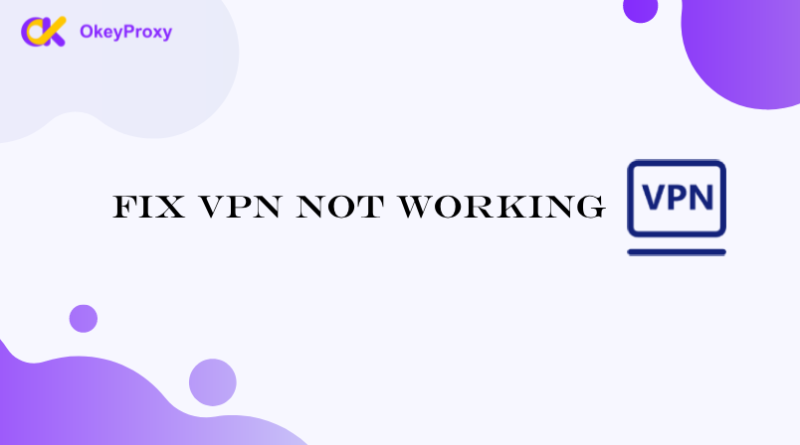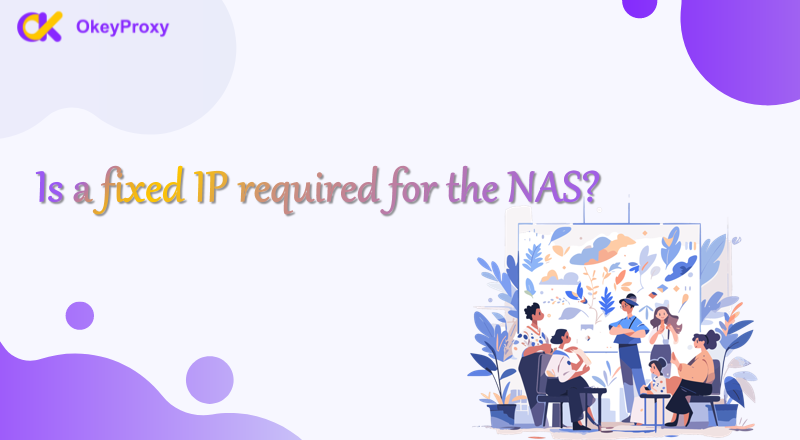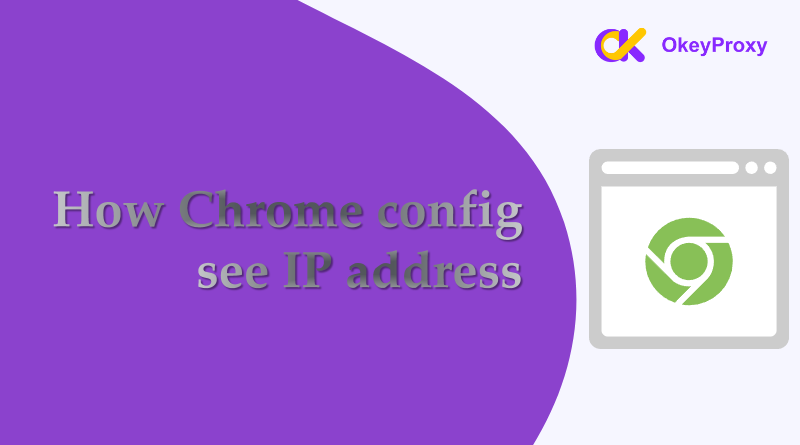How to check my IP? Why do check IP address? If you want to check IP or identify the authenticity and security of proxy traffic, this article is essential for you. Proxy detection and IP checking help websites and service providers identify and filter proxy traffic, ensuring reliable data and secure systems.
Learn About Proxy Detection And IP Checking
Proxy detection is a technical means used to identify and distinguish whether visitors access a target website or service through a proxy server, and IP checking tools help you get accurate IP address data and check whether the proxy works or not. Proxy servers can hide the user’s real IP address, providing privacy protection, bypassing access restrictions, and other functions. However, in certain scenarios, websites and service providers need to identify and filter proxy traffic to ensure the authenticity and security of data. Meanwhile, users may need to find a clean IP for advanced use cases, proxy detection and IP checking are required.
Why Are Proxy Detection And IP Checker Needed?
- Prevent Fraud: In fields such as financial services, e-commerce, and advertising, proxy IPs may be used for fraudulent activities. By detecting proxy IPs, fraudulent transactions, fake clicks, and other issues can be effectively prevented.
- Enhance Data Accuracy: In data analysis and user behavior research, real user data is crucial. Filtering out proxy traffic can improve the accuracy and reliability of the data.
- Security Protection: Certain attack behaviors (such as DDoS attacks) may be initiated through proxy IPs. Detecting and filtering proxy IPs helps enhance system security.
- Access Control: Some content or services are only available to users in specific regions. By detecting proxy IPs, effective access control can be ensured.
How Proxy Detection And IP Checker Work?
-
IP Database and Tool Website Queries
By querying professional IP databases and tool websites, detailed information about IP addresses can be obtained, including geographical location, ISP (Internet Service Provider), and whether it is a proxy IP. Common IP databases include IPinfo, MaxMind, IP2Location, etc.
-
HTTP Header Analysis
HTTP request headers contain rich information, and by analyzing this information, it can be determined whether the access is through a proxy. For example, fields like X-Forwarded-For and Via are usually added by proxy servers and can be used as a basis for judgment.
-
Behavior Analysis
By analyzing user behavior patterns, abnormal behaviors can be identified. For example, frequent requests, large numbers of visits in a short time, and abnormal access paths may all be automated operations through proxy IPs. These behavior characteristics can serve as auxiliary evidence for detecting proxy IPs.
-
Latency and Response Time Testing
Proxy servers add an intermediate step to the request process, usually leading to increased latency and response time. By measuring the latency and response time of requests, the presence of a proxy server can be determined. Additionally, changes in latency over multiple requests can further confirm the existence of a proxy.
-
DNS Reverse Lookup
By performing a DNS reverse lookup on an IP address, the hostname information of the IP address can be obtained. If the hostname contains obvious proxy service identifiers such as “proxy” or “vpn,” it can be inferred that the IP is a proxy.
-
Honeypot Technology
Honeypots are a security technology that sets up decoy systems to attract and record the behavior of attackers. Combining honeypots with proxy detection can identify and record malicious access through proxy IPs.
Main Applications of Proxy Detection And IP Checker
-
E-commerce
On e-commerce platforms, proxy IPs may be used for fake orders, fake reviews, and other behaviors. By detecting proxy IPs, such fake traffic can be effectively filtered out, ensuring the fairness of the platform and user experience.
-
Online Advertising
In online advertising, proxy IPs may be used for fake clicks, wasting advertising budgets. Detecting and filtering proxy IPs can ensure the authenticity and effectiveness of advertising.
-
Financial Services
In the field of financial services, proxy IPs may be used for fraudulent transactions. Proxy IP detection can enhance transaction security and prevent fraud risks.
How to Promote Proxy Detection And IP Checking?
-
Combine Multiple Detection Methods
A single detection method may have limitations. You can combine multiple detection methods, the accuracy of IP checking can be improved. For instance, combining IP database queries, HTTP header analysis, behavior analysis, etc., for comprehensive judgment.
-
Real-time Monitoring and Dynamic Updates
Through real-time monitoring and dynamic updates, new proxy IPs can be promptly discovered and addressed. Users could integrate machine learning and big data analysis technologies to enhance the intelligence level of detection.
-
User Feedback and Manual Review
User feedback and manual review can further improve detection effectiveness. User feedback can help identify false positives and false negatives, while manual review can handle complex and special detection scenarios.
Tools for Checking IP And Proxy Detection
There are different types of proxy detection and IP checking tools, ranging from simple IP query services to complex comprehensive detection platforms. We will share some popular tools and services for you:
-
IPinfo
IPinfo provides information on the geographical location, ISP, and proxy type of IP addresses, supporting API queries and batch queries.
Features:
- Real-time updated IP database
- Detailed proxy detection and VPN identification
- API support for multiple programming languages
-
MaxMind
MaxMind has GeoIP2 and GeoIP Legacy databases, it can identify the geographical location, ISP, and proxy type of IP addresses.
Features:
- High-precision geographical location and ISP information
- API support for multiple programming languages
- Detailed proxy detection data
-
IP2Location
IP2Location offers a rich IP address database, including geographical location, ISP, and proxy type information, supporting multiple query methods.
Features:
- Global IP address data coverage
- Support for offline databases and online queries
- Detailed proxy detection information
-
IPQualityScore
You can find IP address risk scores, proxy detection, VPN identification, and other services in IPQualityScore to help identify fraud and malicious behavior.
Features:
- IP risk scoring
- Support for proxy, VPN, and Tor detection
- Real-time updated IP database
-
Whoer.net
Whoer.net has online IP address query and proxy detection services, supporting detailed geographical location and proxy type information.
Features:
- Online query and API support
- Detailed proxy detection and VPN identification
- Real-time updated IP database
-
Shodan
Want to detect whether an IP address is a proxy server or has open proxy ports? Shodan is an Internet device search engine that you need.
Features:
- Detailed device and service information
- API support and batch queries
- Real-time updated IP database
-
ProxyCheck.io
If you want to get real-time proxy IP detection and analysis, choose the dedicated proxy detection service ProxyCheck.io.
Features:
- Real-time detection of proxies, VPNs, Tor, etc.
- API support and batch queries
- Detailed detection reports
-
AbuseIPDB
AbuseIPDB is a community-driven IP address reporting and query platform that can detect whether an IP address has been reported as a proxy, VPN, or for malicious behavior.
Features:
- Community-driven IP reporting and query
- Detailed proxy detection and risk scoring
- API support and batch queries
Conclusion
IP checker and proxy detection are vital for safeguarding internet security, enhancing data accuracy, and preventing fraud. Despite challenges like evolving proxy technologies, employing a combination of detection methods, real-time monitoring, and user feedback can significantly improve detection effectiveness. As technology advances, these tools will continue to play a critical role in maintaining a secure and reliable internet ecosystem, supporting various applications and ensuring a safer online environment for businesses and users alike.





